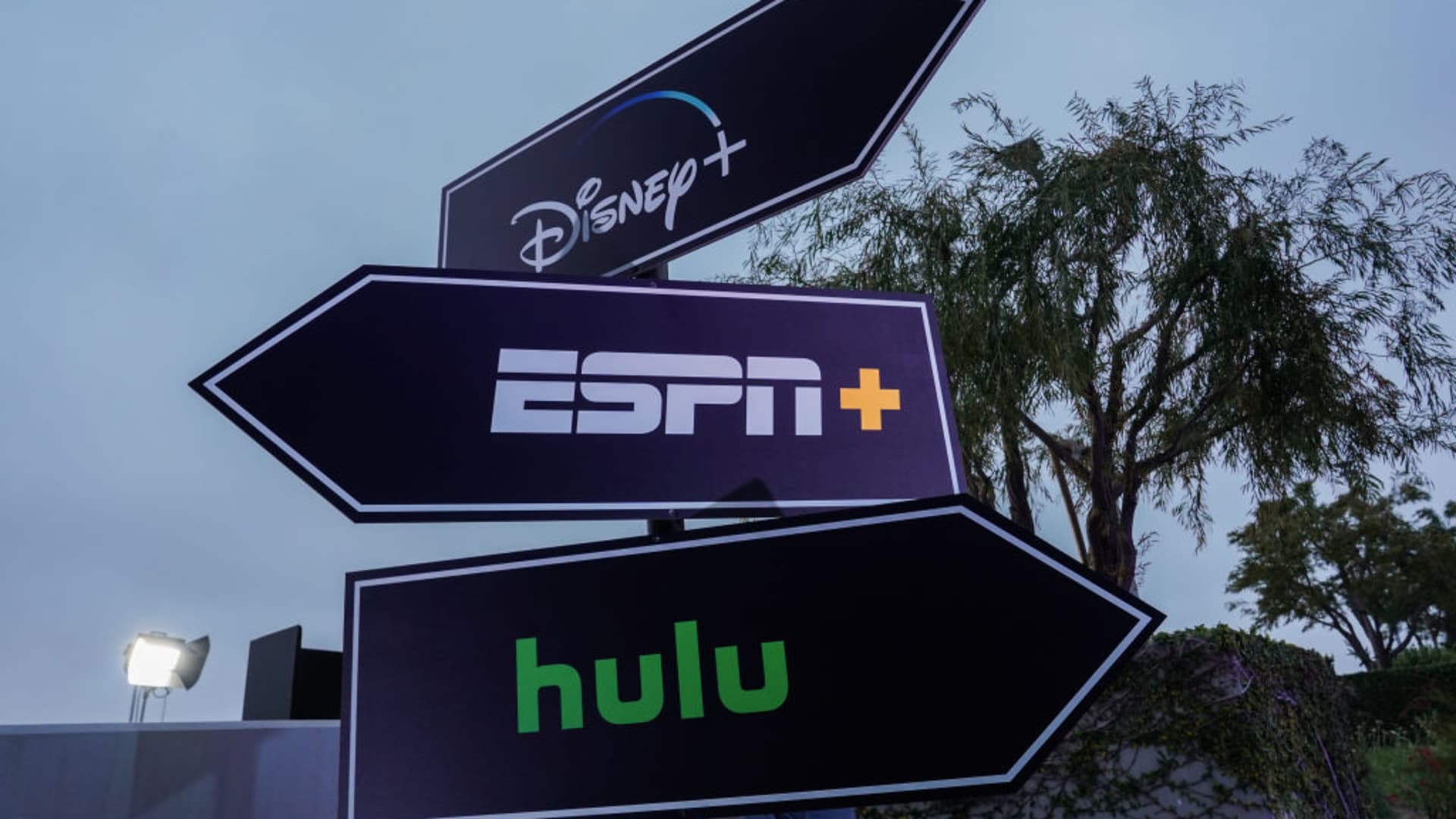This year proved to be yet another tough one for pay TV, as more people cut the cable cord.
But it wasn’t exactly kind to streaming services, either, as platforms dealt with subscriber declines, slumping ad revenue and stubborn losses while Netflix continued to assert its dominance.
Still, the age of the cable bundle is giving way to the era of a new kind of bundle that could give both streamers and cable providers a path forward. Media executives told CNBC this month that 2024 could finally be the year that media companies get serious about the bundle.
“The Charter-Disney deal was a sign of the times,” said Macquarie analyst Tim Nollen.
Disney and cable giant Charter Communications battled over fees during the lead-up to the National Football League season, with Charter CEO Chris Winfrey saying it wasn’t “a typical carriage dispute.” Disney-owned channels, including ESPN, ceased broadcast for millions of customers of Charter’s Spectrum service for nearly two weeks.
The blackout ended in September, hours before “Monday Night Football” was set to kick off on ESPN, with a deal that gave Spectrum TV Select Plus subscribers access to the ad-supported tier of Disney+, as well as ESPN+.
Similar arrangements could well emerge in 2024, given the broad subscriber bases and positive revenue implications for pay TV and broadband companies, Nollen added. Liberty Media Chairman and cable TV pioneer John Malone, who’s also on the board of Warner Bros. Discovery, earlier this year predicted more integration of streaming services into cable bundles.
Mergers and acquisitions would also lead to more bundling. Paramount CEO Bob Bakish and Warner Bros. Discovery CEO David Zaslav met last week to discuss a possible merger of the two companies, although talks are in early stages.
Despite the demand for a streaming bundle, top players have historically been apprehensive to make such a deal. Companies would have to navigate the calculus of average revenue per user, or ARPU, and subscriber growth when offering their services at a discount.
A discounted bundle could shrink ARPU, but if subscribers grow leaps and bounds due to the bundle, it could offset that loss. Media companies that also house cable networks could be concerned that a streaming bundle would cannibalize their cable plans.
Top streaming platforms already made some big moves in 2023. Disney agreed to buy Comcast’s remaining one-third stake in Hulu in a long-expected move. Disney also began rolling out its combined Disney+ and Hulu platform earlier this month, with a full release coming in March 2024. Disney already offers a three-way bundle of Disney+, ESPN+ and Hulu.
Paramount Global and Apple earlier this month were reported to be considering a bundle of Apple TV+ and Paramount+. Verizon, which offers cellphone and home internet plans, was reportedly gearing up to offer a bundle of the ad-supported tiers of Max and Netflix to Verizon customers for $10 a month, $7 less than subscribing separately.
The integration of streaming into the pay TV bundle could shape up to provide some much-needed upside for the industry. Ad revenue has slipped considerably for pay TV and is on pace to face an 18% decline this year, according to media investment firm GroupM. The ad-supported tiers of streaming platforms, which are often included in bundles, drive higher ARPU for cable companies due to the ad revenue generated, Nollen said.
Much similar to pay TV providers, streaming platforms have had to contend with subscriber losses over the past year, albeit at a slower pace. Streaming leader Netflix, for example, has pivoted to raise the price of its plans while also rolling out ad-supported tiers to offset subscriber losses.
Zaslav warned last month of a “generational disruption” and pointed to the company’s streaming service Max, which he said at one point was “losing billions of dollars.” Warner Bros. Discovery did, however, turn a profit in its streaming segment, according to the company’s most recent quarterly earnings report.
The Disney-Charter deal offered a framework for cable companies to transition their business models into the streaming era and stabilize subscriber trajectories, according to Ampere Analysis.
“Charter gets to protect and hopefully grow pricing on its subscriber base,” Nollen said. “Disney and Warner Bros. Discovery have the most potential upside” from the bundling trend “given the breadth of content on their combination of services and the fact that they’re beginning to bundle those together already.”
Disney, Warner Bros. Discovery, Paramount, Netflix and Apple didn’t immediately respond to CNBC’s request for comment.
— CNBC’s Alex Sherman contributed to this report.
Don’t miss these stories from CNBC PRO:
- Official Wall Street outlook: Here’s where strategists see the stock market going in 2024
- Here’s where to invest $50,000 heading into 2024, according to market pros
- Morgan Stanley prefers ‘boring’ non-AI tech stocks for 2024. Here are its top global picks
- Bank of America reveals its 4 top biotech picks for 2024 — and gives one 166% upside
- CD rates are dropping. Here’s where to find the highest payouts
